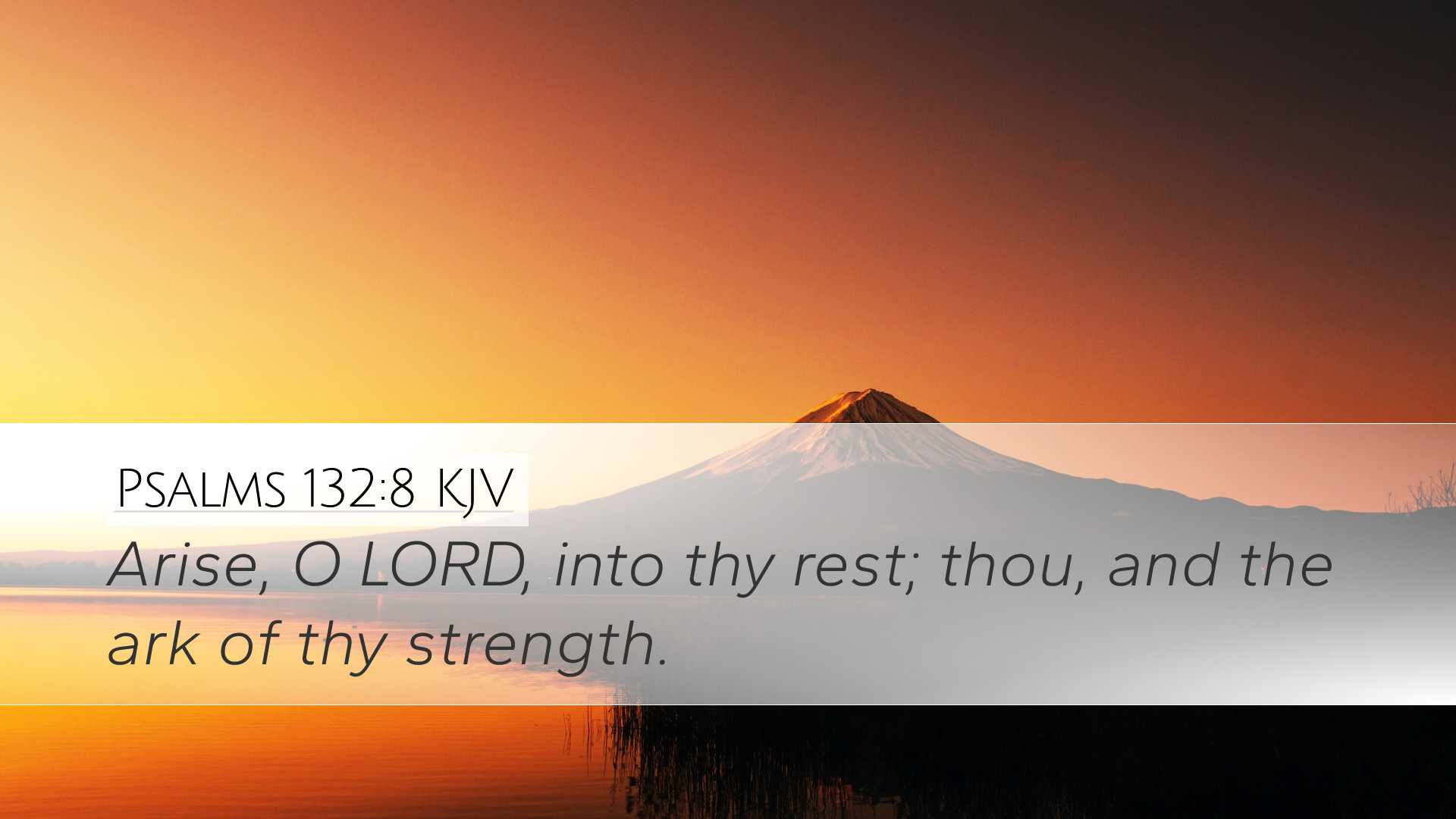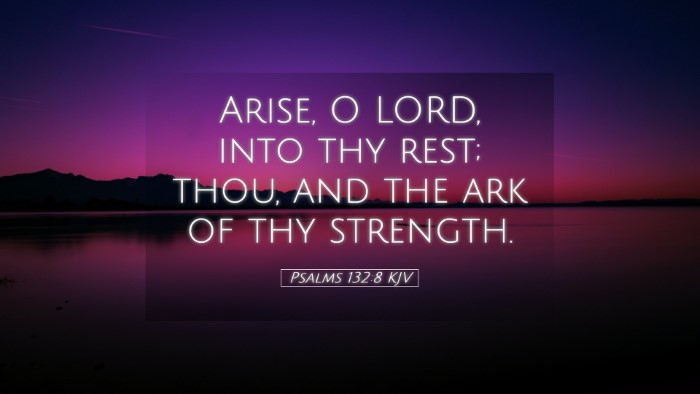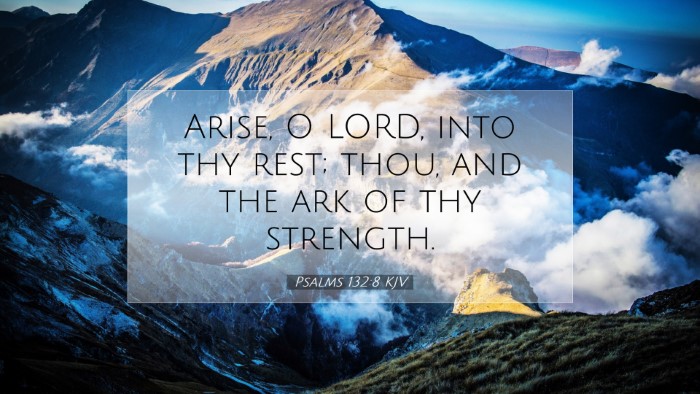Commentary on Psalms 132:8
Psalms 132:8 states:
"Arise, O Lord, into thy rest; thou, and the ark of thy strength."
Contextual Overview
This verse is part of a psalm that centers on the significance of the Ark of the Covenant and God's chosen dwelling place. It reflects a deep yearning for God's presence among His people in Zion and is tied closely to the themes of God's kingly reign and the spiritual rest found in Him.
Commentary Insights
Matthew Henry's Commentary
Matthew Henry emphasizes the prayerful tone of this verse. He notes that the psalmist speaks earnestly for God to rise and fulfill His promises. The invocation to "arise" indicates a desire for God's active presence in the nation of Israel. It calls attention to the significance of the Ark as a symbol of God's strength and protection.
- Divine Presence: Henry outlines that the request for God's rising points towards a yearning for divine intervention and guidance.
- Rest of God: The "rest" referred to signals not just physical rest but a spiritual peace which God's people experience when He is among them.
- Strength and Hope: The Ark symbolizes God's might, signifying that true strength lies in the divine assurance of His presence.
Albert Barnes' Notes on the Bible
Albert Barnes provides a historical context, elucidating on how the Ark represented the covenant between God and His people. He underscores the significance of the request to "arise" as a yearning for God's active leadership and sovereign rule.
- Theological Implications: Barnes suggests that the call for God to arise implies recognition of His supremacy and authority over the affairs of humanity.
- Covenantal Fulfillment: The mention of “the ark of thy strength” refers to the hope in God's faithfulness to His covenant promises.
- Call to Action: The psalmist serves as a voice encouraging the faithful to seek God's presence actively, emphasizing that the relationship with God is participatory.
Adam Clarke's Commentary
Adam Clarke provides insights into the poetic structure of the psalm. He articulates that the verse is a plea for God's arrival to take His rightful place in Zion's temple, reiterating the importance of divine presence in worship.
- Symbolic Representation: Clarke highlights that the Ark represented not only God's presence but also His glory, emphasizing the continuity of God's attributes.
- Historical Reflection: He notes that this prayer reflects the heart of a community that recognizes their dependence on God’s strength for survival and success.
- Praise and Worship: The act of inviting God to rest implies the ultimate act of worship, acknowledging His lordship and the need for His guidance.
Application for Today
This verse serves as a profound reminder for contemporary believers about the importance of invoking God’s presence in their lives and communities. It calls attention to the necessity of worship and reliance on God’s strength and promises.
- Inviting God’s Presence: Just as the psalmist called for God to arise, modern believers are encouraged to actively seek God’s presence in their worship and daily affairs.
- Resting in God: Understanding what it means for God to "rest" among us challenges individuals to create spaces where His presence can be felt and experienced.
- Emphasizing Community Worship: The communal aspect of this psalm reminds congregations of the power found in collective worship and prayer, uniting to seek God’s leadership.
Conclusion
The plea in Psalms 132:8 is more than a historical request—it encapsulates a yearning that transcends time, reminding all whom it comes to today of the essential pursuit of God’s presence, peace, and strength in their lives. Both pastors and scholars alike can draw deep theological understanding and practical application from these rich commentaries as they explore the complexities and simplicities of Divine engagement with humanity through the symbolism of the Ark of the Covenant.


